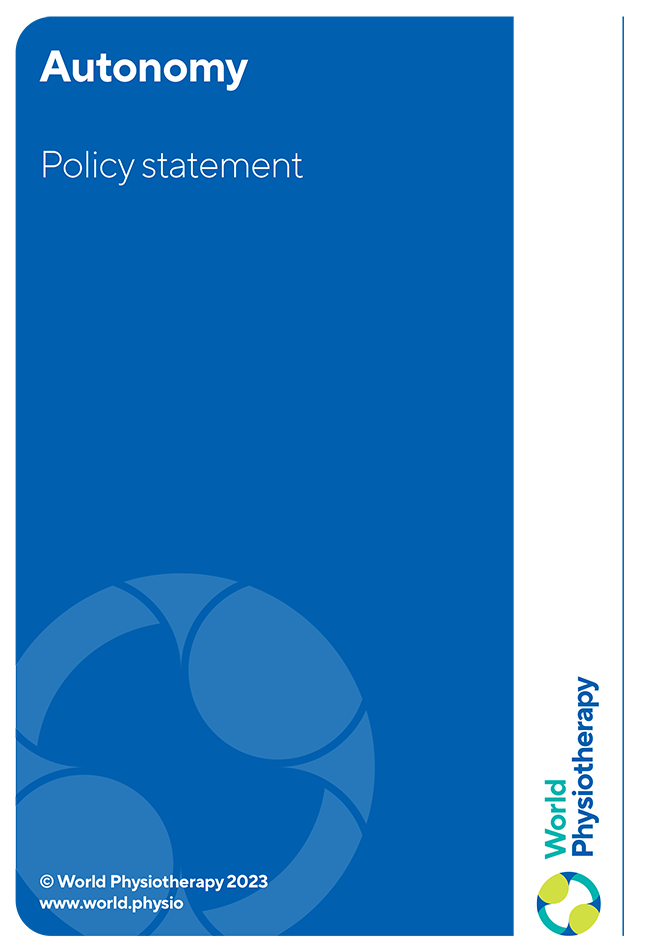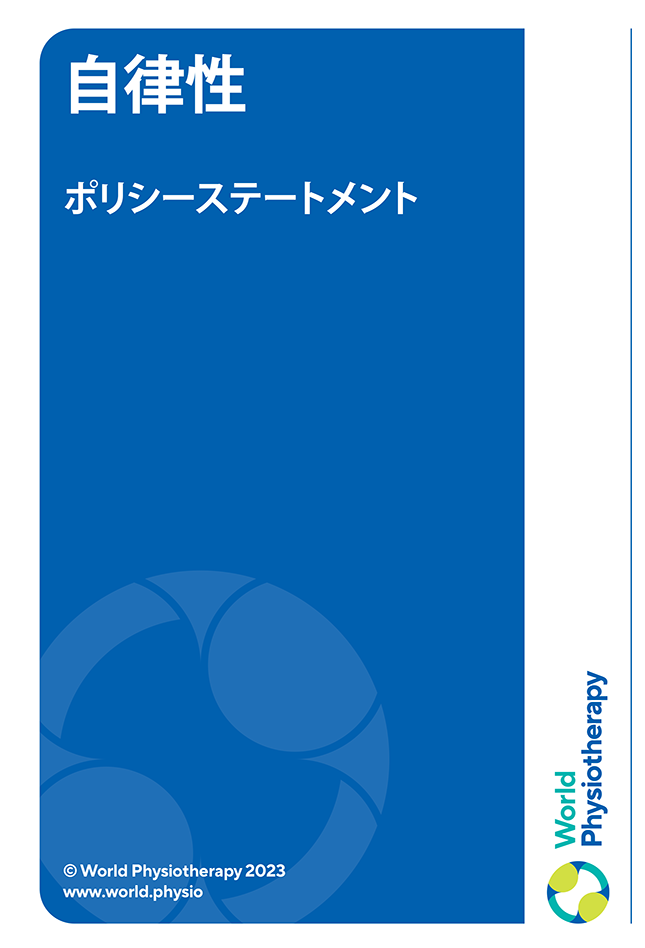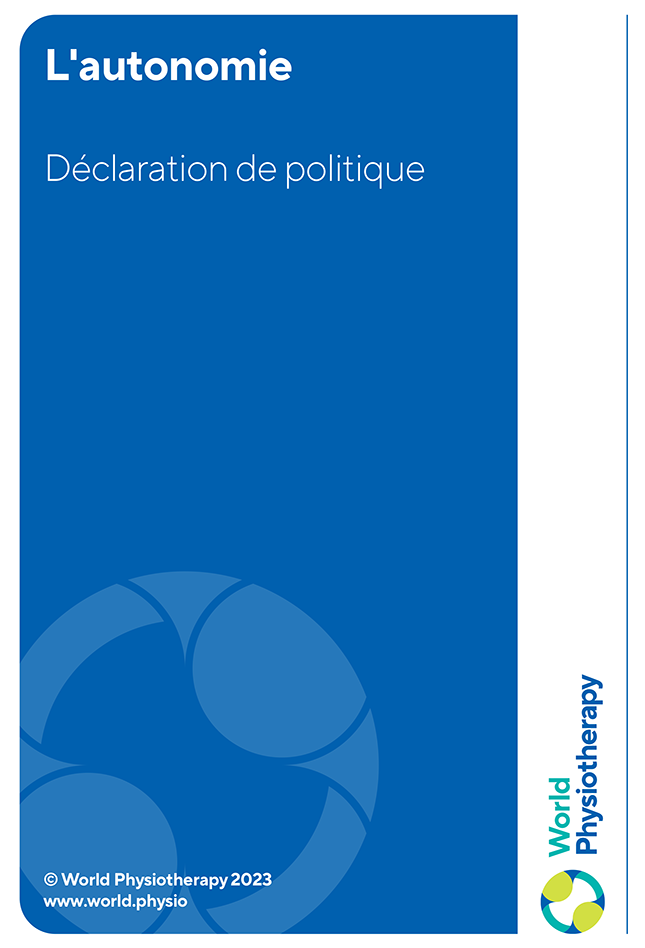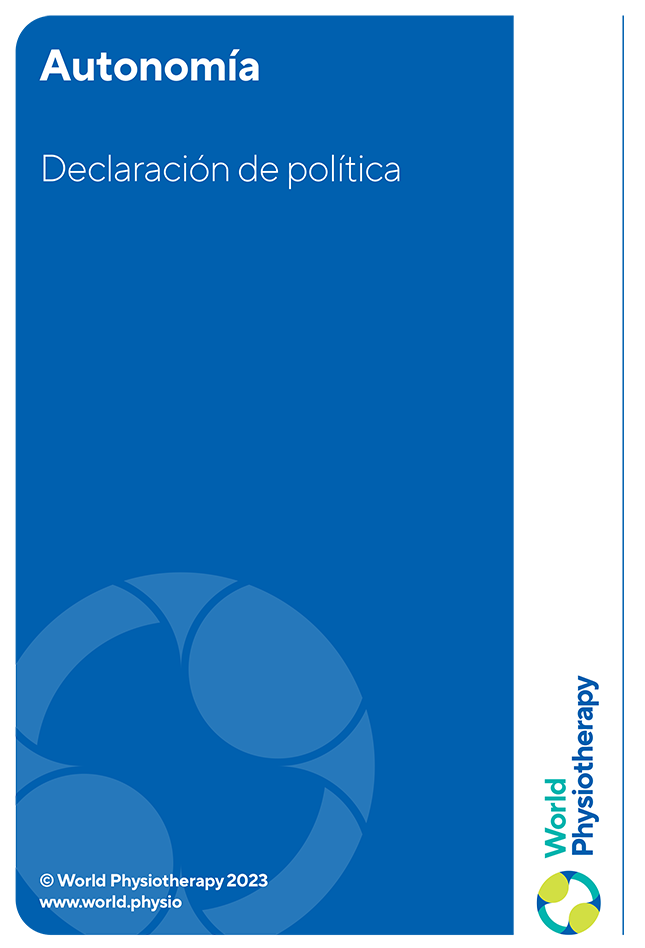World Physiotherapy advises that physiotherapists, as autonomous professionals, should have the freedom to exerciseExercise: A subcategory of physical activity that is planned, structured, repetitive, and purposeful in the sense that the improvement or maintenance of one or more components of physical fitness is the objective. Physical activity includes exercise as well as other activities which involve bodily movement and are done as part of playing, working, active transportation, house chores and recreational activities. View full list of glossary terms their professional judgment and decision making, wherever they practice, within the physiotherapistSee Physical therapist's knowledge, competenceCompetence: The proven ability to use knowledge, skills and personal, social and/or methodological abilities, in practice or study situations and in professional and personal development. Further, it is the ability of a physical therapist to practise safely and effectively in a range of contexts and situations of varying levels of complexity. The level of an individual’s competence in any situation will be influenced by many factors. These factors include, but are not limited to, the physiotherapist’s qualifications, clinical experience, professional development and their ability to integrate knowledge, skills, attitudes, values and judgements. View full list of glossary terms and scope of practiceScope of practice: The full spectrum of roles, functions, responsibilities, activities and decision-making capacity that individuals within the profession are educated, competent and authorised to perform. WCPT describes the parameters of a physiotherapist’s scope of practice in its description of physiotherapy. See also Advanced practiceView full list of glossary terms.
Policy statement: Autonomy





